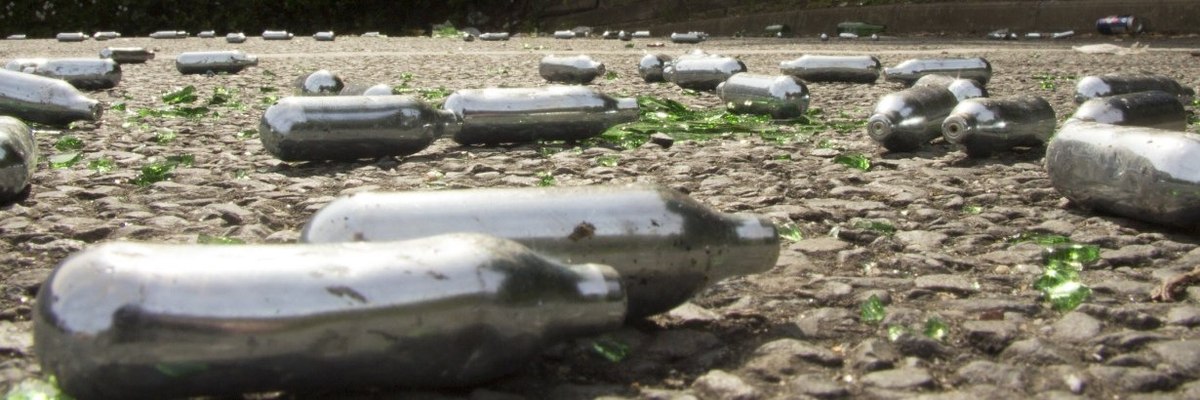Among 12 substances asked about, laughing gas is considered the second least harmful, after marijuana
Home Secretary Priti Patel announced last month that she has ordered a review into the harm that nitrous oxide causes, and is ready to take “tough action”. But while laughing gas, usually consumed through balloons, is reportedly the second-most used drug among young adults in the UK, Britons are not overly convinced about the harms when compared with other drugs.
Britons tend to view legal substances such as tobacco and alcohol as more harmful to the user and society in general than laughing gas. Around half of the public say tobacco is ‘very harmful’ to people who consume it regularly (53%) and in terms of the wider cost to society (47%). Similarly, about a third of Britons (35%) deem alcohol ‘very harmful’ to the user, while about half (47%) believe the same about its costs to society.
In contrast, only three in ten people believe laughing gas is very damaging to the user (30%) and society (29%). Consultant psychiatrist and addiction medicine specialist Adam Winstock, has said that laughing gas has “minimal risks to most users”, while making it illegal will “add the risk of criminality to all”.
Britons consider marijuana the least harmful substance among those included in the survey, with only one in four (25%) deeming it highly dangerous to regular users, while three in ten people (31%) say it’s very damaging in terms of societal costs. Controversially, Professor David Nutt has previously claimed that among a list of the most common drugs including cocaine, ecstasy and tobacco, alcohol is the most dangerous due to its harm to users and to others.
But crack cocaine is the drug most Britons describe as ‘very harmful’ to users (90%) and in societal costs (68%). Heroin scored similarly highly on these measures, with 88% saying it’s very damaging to users and two thirds (67%) to society.
The public are unconvinced that banning laughing gas would achieve much Drug experts have described the nitrous oxide ban as “completely pointless” and a “waste of time”.
The public are not convinced either: only one in four people (24%) believe making a drug illegal is an effective way of preventing people from taking it, while three in five (60%) say it’s ineffective.
This view is consistent across party lines – 60% of Conservative voters and 67% of Labour voters believe criminalising drugs is futile for prevention.
If criminalising drugs is ineffective, should they be treated more as a health issue?
While the public have little faith in current drug legislations, Britons are torn on whether drugs should be considered as more of a health or more of a criminal issue.
The most common answer is that it should be treated as both equally (36%), while three in ten (28%) lean more towards it being viewed as a health issue, and a quarter (24%) prefer to see it as a criminal matter.
Younger people are much less inclined to say drug use should solely be considered a criminal issue, with only 9% of 18-24-year-olds being of this opinion. They are instead split between it being purely a health concern (33%) or as both a health and criminal issue (32%).
In contrast, three in ten Britons aged 65+ (29%) say drug use should be considered a criminal matter – the highest of any age group. Meanwhile, a fifth (21%) would prefer to for it to be a health issue, while two in five (42%) say it should be both.
See the full results here







